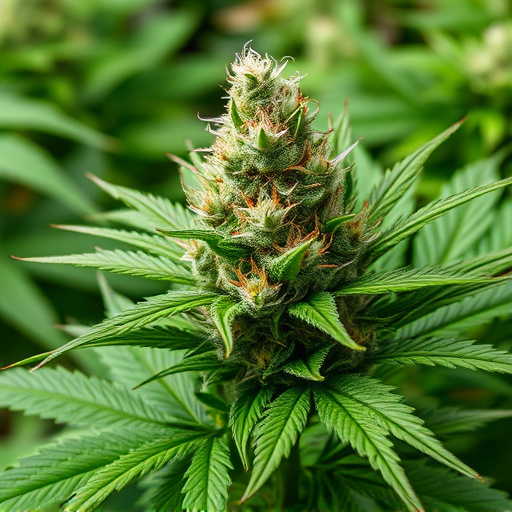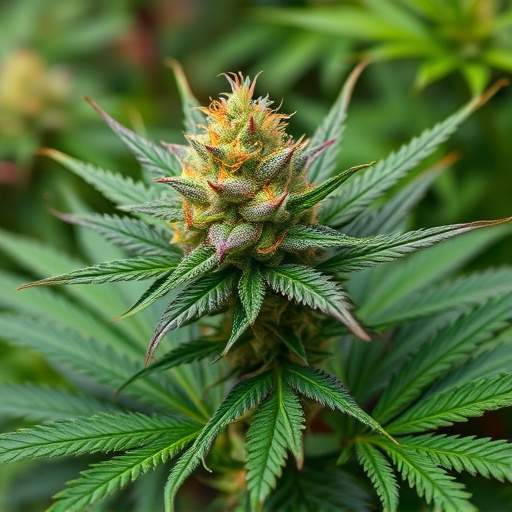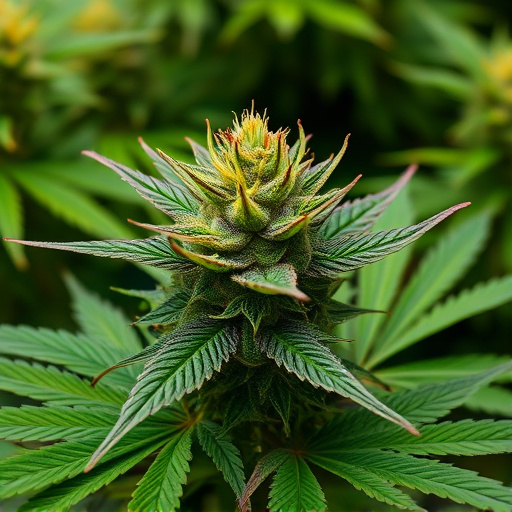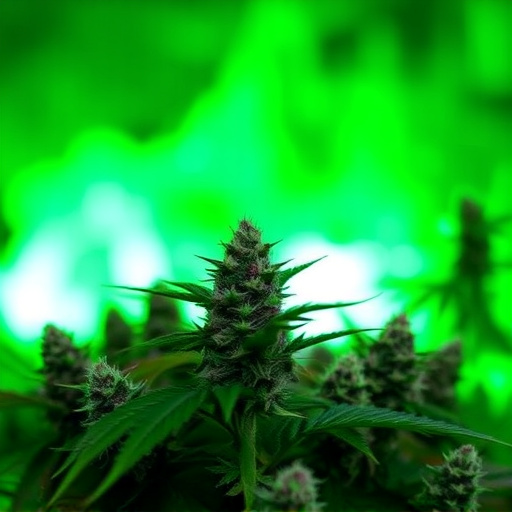High THC cannabis strains can cause short-term effects like anxiety, paranoia, and cognitive impairments, being especially harmful to newcomers or those with low tolerance. Prolonged use may lead to severe health issues, including respiratory problems and neurocognitive deficits, particularly in youth and individuals with mental health conditions. While balanced cannabinoid profiles are recommended for a milder experience, the potential risks associated with high THC strains underscore the importance of awareness when consuming them.
“Explore the unseen consequences of smoking weed, especially as it concerns high THC cannabis strains. This article delves into the intricate web of potential side effects that can impact both physical and mental health. From short-term reactions like heightened anxiety and cognitive impairment to long-term implications such as respiratory issues and memory retention difficulties, understanding these risks is crucial. We examine how high THC content can exacerbate existing conditions, emphasizing the need for informed decision-making regarding cannabis consumption.”
- Potential Short-Term Side Effects of High THC Cannabis Strains
- Long-Term Health Implications Associated with Regular Weed Use
- Cognitive and Mental Health Concerns Related to Cannabis Consumption
Potential Short-Term Side Effects of High THC Cannabis Strains

The short-term effects of consuming high THC cannabis strains can be quite varied and, for some individuals, potentially disturbing. THC, the primary psychoactive compound in cannabis, has a powerful impact on the brain’s endocannabinoid system, which regulates mood, memory, and perception of pain. Short-term side effects may include heightened anxiety and paranoia, especially in those who are new to cannabis or have low tolerance for THC. These feelings can be exacerbated by high doses or a strain with particularly potent THC levels.
Cognitive impairments are another common short-term consequence of consuming high THC strains. Tasks requiring focus and concentration may become challenging, leading to difficulties with memory, problem-solving, and decision-making. This is often referred to as a “mental fog” and can last for several hours after consumption. Additionally, some users experience temporary disorientation or a distorted sense of time, further adding to the potential for an unpleasant experience. These side effects are more likely to occur when THC levels surpass 20%, emphasizing the importance of choosing strains with more balanced cannabinoid profiles for those seeking a milder high.
Long-Term Health Implications Associated with Regular Weed Use

Regular and long-term use of cannabis, especially those with high THC content, can have significant health implications. Research suggests that chronic exposure to the chemical compounds in weed, particularly tetrahydrocannabinol (THC), may contribute to respiratory issues such as chronic bronchitis and increased risk of lung infections. This is particularly concerning for individuals who smoke cannabis frequently, as it can lead to reduced lung capacity and function over time.
Additionally, studies point towards potential neurocognitive effects, with regular marijuana use linked to memory impairment, difficulties in concentration, and learning challenges. High THC strains are known to induce psychotic episodes in susceptible individuals, worsening symptoms of anxiety and depression. Long-term users may also experience chronic throat irritation and a higher likelihood of developing cancerous growths in the respiratory tract due to the tar and other chemicals inhaled during smoking.
Cognitive and Mental Health Concerns Related to Cannabis Consumption

Cannabis consumption, particularly among younger individuals and those with pre-existing mental health conditions, has been linked to various cognitive and mental health concerns. High THC cannabis strains, known for their potent effects, can significantly impact brain function. Regular use may lead to difficulties in memory, learning, and attention span—effects that can be especially pronounced during adolescence when the brain is still developing.
Studies suggest that long-term exposure to high doses of THC could contribute to an increased risk of psychosis or exacerbate existing symptoms in individuals with schizophrenia. While the relationship between cannabis use and mental health is complex and not fully understood, it’s crucial for consumers to be aware of these potential risks, especially when choosing strains with elevated THC levels.
While cannabis, especially high THC strains, offers potential therapeutic benefits, it’s crucial to acknowledge the side effects, both short-term and long-term. The impact on mental health, cognitive function, and overall well-being cannot be overlooked. Understanding these effects is essential for making informed decisions, particularly when considering regular use. Remember that moderation and awareness of individual reactions are key to navigating the world of cannabis consumption safely.














